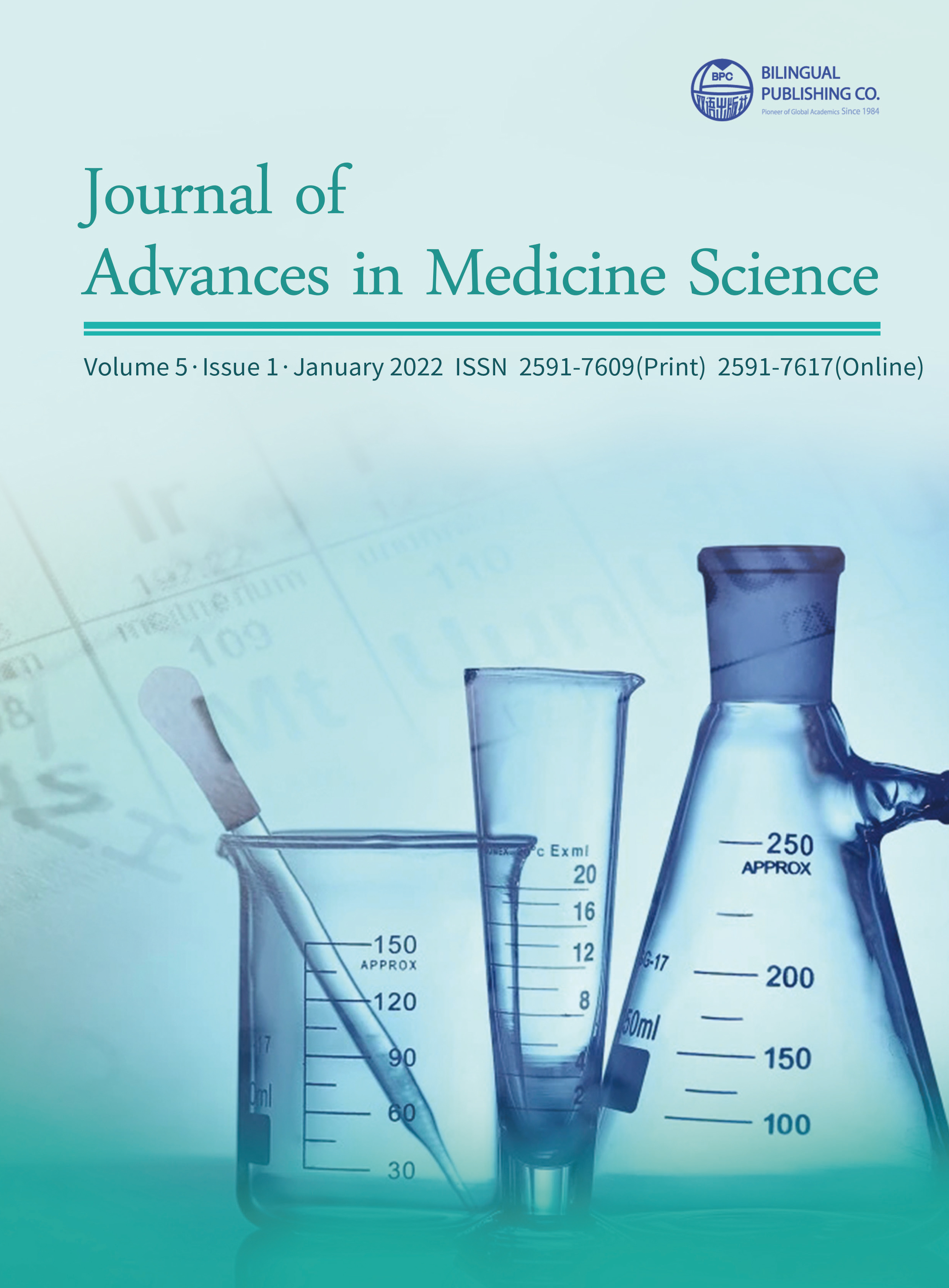Research Progress on Effective Implementation of Whole Process Nursing Model for Patients with Cervical Cancer
DOI:
https://doi.org/10.30564/jams.v5i1.3623Abstract
Cervical cancer has a high mortality rate in clinic. This disease seriously threatens the physical and mental health and life safety of patients. At present, radical surgery is mainly used for treatment, but in order to reduce the incidence of intraoperative and postoperative complications, corresponding nursing needs to be coordinated. This time focuses on the complications after radical surgery for cervical cancer, and puts forward the nursing methods of common complications of transabdominal radical surgery for cervical cancer. In order to improve the quality of nursing and life of patients, this paper summarizes the effective implementation of the whole process nursing model after cervical cancer surgery.
Keywords:
Cervical cancer; Whole course nursing mode; ImplementationReferences
[1] Lee, K.K., Lee, J.Y., Nam, J.M., et al., 2015. High-dose-rate vs. low-dose-rate intracavitary brachytherapy for carcinoma of the uterine cervix: Systematic review and meta-analysis. Brachytherapy. 4(4), 449-457.
[2] Müller, D.A., Capanna, R., 2015. The surgical treatment of pelvic bone metastases. Adv Orthop. 525363.
[3] Matsuo Koji, Mandelbaum Rachel S., Klar Maximilian, Ciesielski Katharine M., Matsushima Kazuhide, Matsuzaki Shinya, Roman Lynda D., Wright Jason D., 2021. Decreasing utilization of minimally invasive hysterectomy for cervical cancer in the United States. Gynecologic Oncology. 162(1).
[4] Wang Zhi, Zeng Ang, Long Fei, Wu Ming, Tan Xian Jia, Liu Zi Wen, Wang Xiao Jun, 2021. Use of Vaginal Reconstructive Surgery in Cervical Cancer Patients to Prevent Vaginal Stump Contracture. Journal of Investigative Surgery. 34(7).
[5] Yang Fan Chun, Huang Wei, Yang Weihong, Liu Jie, Ai Guihai, Luo Ning, Guo Jing, Chua Peng Teng, Cheng Zhongping, 2021. Cervical Cancer Surgery: Current State of Affairs. Gynecology and minimally invasive therapy. 10(2).
[6] Binggang Ye, Zhouyi Guo, Hanchuan Huang, Xicheng Yang, Pedro Cabrales, 2015. Thermal Tomography Imaging in Photonic Traditional Chinese Medicine Information Therapy with Holistic Effect for Health Whole Nursing. BioMed Research International.
[7] Duan Xia, Shi Yan, 2014. Current status of quality evaluation of nursing care through director review and reflection from the Nursing Quality Control Centers. International journal of clinical and experimental medicine. 7(10).
[8] Guifeng Xue, Huafang Yi, Ping Xue, Wenmin Sun, 2021. The Effects of Humanized Psychological Nursing Model in General Surgery Nursing. Proceedings of Anticancer Research. 5(4).
[9] Redondo Elvira Tamara, Ibáñez Del Prado Celia, Cruzado Juan Antonio, 2021. Psychological well-being in palliative care: A systematic review. Omega.
[10] Lingens Solveigh P, Hagedoorn Mariët, Zhu Lei, Ranchor Adelita V, van der Lee Marije, Garssen Bert, Schroevers Maya J, Sanderman Robbert, Goedendorp Martine M, 2021. Trajectories of fatigue in cancer patients during psychological care. Psychology & health.
[11] Jacqueline Peet RN, Karen Theobald PhD, RN, Clint Douglas PhD, RN., 2019. Strengthening nursing surveillance in general wards: A practice development approach. Journal of Clinical Nursing. 28(15-16).
[12] Papadimitriou Nikos, Markozannes Georgios, Kanellopoulou Afroditi, Critselis Elena, Alhardan Sumayah, Karafousia Vaia, Kasimis John C, Katsaraki Chrysavgi, Papadopoulou Areti, Zografou Maria, Lopez David S, Chan Doris S M, Kyrgiou Maria, Ntzani Evangelia, Cross Amanda J, Marrone Michael T, Platz Elizabeth A, Gunter Marc J, Tsilidis Konstantinos K., 2021. An umbrella review of the evidence associating diet and cancer risk at 11 anatomical sites. Nature communications. 12(1).
Downloads
Issue
Article Type
License
Copyright and Licensing
The authors shall retain the copyright of their work but allow the Publisher to publish, copy, distribute, and convey the work.
Journal of Advances in Medicine Science publishes accepted manuscripts under Creative Commons Attribution-NonCommercial 4.0 International License (CC BY-NC 4.0). Authors who submit their papers for publication by Journal of Advances in Medicine Science agree to have the CC BY-NC 4.0 license applied to their work, and that anyone is allowed to reuse the article or part of it free of charge for non-commercial use. As long as you follow the license terms and original source is properly cited, anyone may copy, redistribute the material in any medium or format, remix, transform, and build upon the material.
License Policy for Reuse of Third-Party Materials
If a manuscript submitted to the journal contains the materials which are held in copyright by a third-party, authors are responsible for obtaining permissions from the copyright holder to reuse or republish any previously published figures, illustrations, charts, tables, photographs, and text excerpts, etc. When submitting a manuscript, official written proof of permission must be provided and clearly stated in the cover letter.
The editorial office of the journal has the right to reject/retract articles that reuse third-party materials without permission.
Journal Policies on Data Sharing
We encourage authors to share articles published in our journal to other data platforms, but only if it is noted that it has been published in this journal.




 Jierong Lu
Jierong Lu

